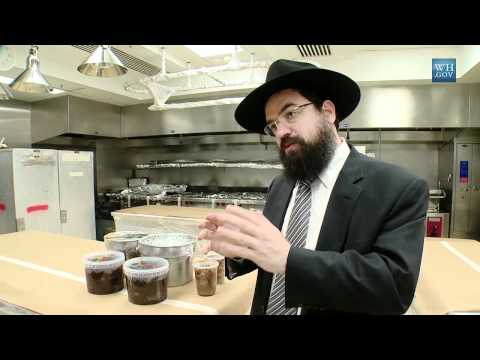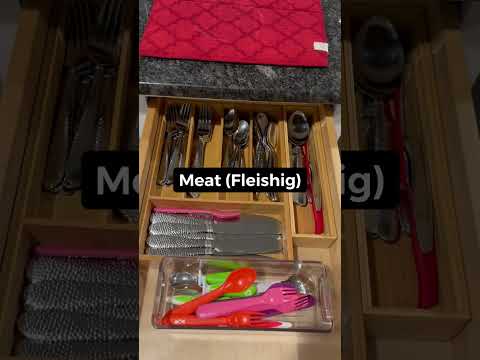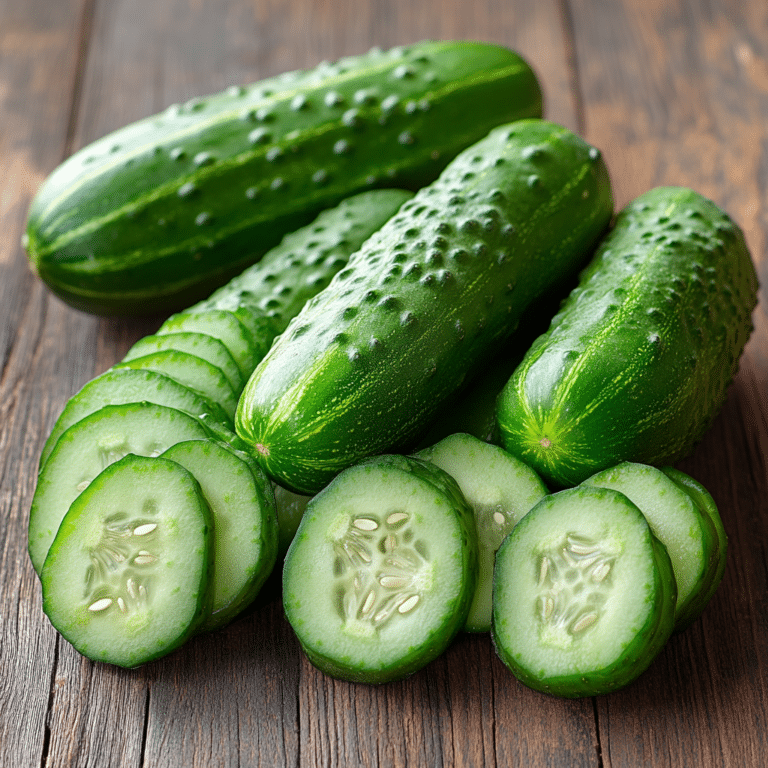Understanding Kosher Kitchen Basics
Embracing a kosher kitchen isn’t just about adhering to dietary laws; it’s a blend of tradition, discipline, and a touch of culinary art. Navigating the kosher kitchen rules is essential whether you’re an observant Jew or simply curious. At the core of these guidelines is kashrut—the body of Jewish law dealing with what foods can and cannot be eaten and how those foods must be prepared and consumed.
A kosher kitchen requires the strict separation of meat (basar) and dairy (chalav). This extends beyond ingredients to encompass utensils, appliances, and even storage. From ancient scriptures to modern interpretations, the essence remains in honoring the rituals and ensuring purity in every meal.

Top 7 Kosher Kitchen Rules and Practices

1. Separate Utensils and Appliances for Meat and Dairy
One cardinal rule is never mixing meat and dairy. Every kosher kitchen must have distinct sets of pots, pans, dishes, and cutlery for meat and dairy. Some kitchens even go as far as having separate shelves in the refrigerator. Kitchenware from brands like Tefal and Cuisinart can help, with color-coded items to avoid any confusion.

2. The Use of Kosher-Certified Appliances and Cookware
Kosher-certified appliances and cookware are crucial. Companies like GE Appliances offer kosher-specific ovens with ‘Sabbath mode,’ which conforms to kosher laws. Further, cookware brands like Le Creuset provide products either already kosher or ones that have gone through the koshering process, ensuring they meet strict kosher requirements.

3. Proper Kosher-Specific Cleaning and Setup
Cleaning practices need close attention to prevent cross-contamination. This means using non-toxic, kosher-certified cleaning products, like those from ECOS. Ideally, sinks should have separate washing areas for meat and dairy. Alternatively, using different basins or meticulously cleaning between uses is a must to maintain the kosher status.
4. Influence of Kosher Certification Agencies
Kosher certification agencies play a pivotal role. Organizations like the Orthodox Union (OU), KOF-K, and Star-K are renowned for their rigorous certification processes. You’ll often find their stamps on kosher products, ensuring they meet the required standards. Before buying, always check for proper certification symbols.
In-Depth Approach to Kosher Kitchen Practices
The Role of Preparation Surfaces
Preparation surfaces in a kosher kitchen need to be clearly marked or color-coded to avoid cross-contamination. Products like Epicurean cutting boards offer specific lines for meat, dairy, and pareve (neutral), ensuring organized and compliant kitchen prep.
The Importance of Properly Koshering Utensils and Appliances
Koshering is crucial when bringing previously non-kosher items into the kitchen. This purification process involves boiling, immersion, or blowtorching utensils. For those keen on DIY, companies like Kosher Kitchens Inc. offer handy kits. Otherwise, professional services are also available to ensure thorough koshering.
Insights and Challenges in Modern Kosher Cuisine
Evolving Kosher Cuisine and Dietary Trends
Modern kosher cuisine has evolved significantly, attracting many for health and ethical reasons. Renowned chefs like Susie Fishbein have revolutionized kosher cooking with cookbooks and shows, incorporating international flavors while respecting traditional laws. This trend showcases the versatility and innovation within kosher cuisine.
Kosher for Passover and Beyond
Maintaining kosher standards for Passover adds another layer of complexity. During this period, chametz (leavened products) are prohibited. Creative solutions have emerged, like Manischewitz’s matzo ball mix and Yehuda’s gluten-free matzo. These innovations continue to uphold tradition while meeting modern dietary needs.
A Final Note on Kosher Kitchen Mastery
Mastering the kosher kitchen is about more than adhering to rules. It’s a dance between ancient traditions and modern innovation, all while maintaining the spirit of the practice. It requires diligence, respect, and a genuine appreciation for the processes involved.
Whether it’s double sinks, designated shelves, or kosher-specific appliances, the kosher kitchen embodies a dedication to purity and a commitment to faith. It’s a powerful testament to resilience and adaptability, inspiring a sense of community and shared values within Jewish households and beyond.
From traditional favorites like gefilte fish to contemporary takes by celebrated chefs, the kosher kitchen is a culinary landscape that’s vibrant and ever-evolving, yet deeply rooted in timeless principles. Embracing these guidelines doesn’t just satisfy religious obligations but also enriches the culinary experience in profound ways.

To learn more about the recent whereabouts of public figures such as Natalia Grace or insights into Cleveland’s own Kyrie Irving, keep an eye on our ongoing updates. If you’re curious about high-level speaker Mentoring or want to uncover the surprising benefits of the medlar fruit, check our latest features. You’ve got the recipe for a kosher kitchen masterpiece—your culinary journey starts here.
Kosher Kitchen Rules: Essential Guide
Interesting Tidbits
Ever wondered what goes on in a kosher kitchen? First off, it’s all about keeping things separate, particularly meat and dairy. Interestingly, for folks who adhere strictly to kosher rules, even the utensils, pots, and pans used for meat can’t touch anything dairy. Surprising, huh? This intricate system might seem daunting to some, but for those knowledgeable about kosher, it’s second nature, just like how dedicated fans know the exact Hajime no Ippo watch order.
Unexpected Stars
More fascinating still, kosher laws break down foods into three categories: meat, dairy, and pareve (neutral). Pareve foods include fruits, vegetables, and certain fish. Ever hear the term “pareve” at a Shabbat dinner? If you did, you might’ve been as intrigued as sports enthusiasts hearing about Kyrie Irving in Cleveland. It’s these little distinctions in kosher kitchens that keep things interesting.
The Nuts and Bolts
Keeping a kosher kitchen also means that everything has to be certified kosher, from the ingredients to the cleaning supplies. Even a small mix-up can mean starting over. Some might compare these strict guidelines to the diligence required in the world of media, where attention to detail can make or break a career, much like the story of Laura Ingraham ‘s firing. Ensuring the kosher status of a kitchen is no small feat, yet it’s a fundamental part of many homes around the world.
So, whether you’re a fan of Marie-luce Jamagne or someone curious about kosher kitchens, there’s always something new and captivating to learn within these enchanting realms.

What does having a kosher kitchen mean?
Having a kosher kitchen means it’s been certified by a Rabbi to ensure that it follows all kosher guidelines. This includes having separate utensils and accessories for meat and dairy and ensuring everything is properly separated and cleaned, with any non-kosher ingredients disposed of.
What are the three main rules of kosher?
The three main rules of kosher are: separating meat and dairy products, avoiding certain forbidden foods like pork and shellfish, and ensuring all ingredients are prepared using kosher methods under strict supervision.
Does a kosher kitchen need two stoves?
Yes, a kosher kitchen often requires two stoves to properly separate the cooking of meat and dairy, along with separate utensils, pots, and cleaning facilities.
Why do Jews keep a kosher kitchen?
Jews keep a kosher kitchen to adhere to religious dietary laws which are seen as a way to maintain a spiritual and healthy lifestyle. It’s a practice deeply rooted in Jewish tradition and understanding of dietary cleanliness and separation.
Do kosher kitchens have two refrigerators?
Many kosher kitchens do indeed have two refrigerators to keep meat and dairy completely separate, preventing any cross-contamination and maintaining the integrity of kosher standards.
What is the point of kosher food?
Kosher food ensures that all ingredients and preparation methods comply with Jewish dietary laws. It’s about maintaining spiritual cleanliness and health according to religious practices.
Why can’t Jews eat pork?
Jews can’t eat pork because it’s considered unclean according to Jewish dietary laws outlined in the Torah. The prohibition of pork is a distinct and significant part of keeping kosher.
Are eggs kosher?
Yes, eggs are kosher, provided they come from kosher birds and don’t contain any blood spots. They must be carefully inspected before use.
Why can’t Jews mix meat and dairy?
Mixing meat and dairy is prohibited because it’s a fundamental part of Jewish dietary laws. The separation is rooted in biblical commandments and further outlined in rabbinical teachings to avoid any mixing of the two.
Why do Jews have cups with two handles?
The cup with two handles, called a “natla,” is used in a ritual handwashing before eating bread, symbolizing cleanliness and spiritual purity.
What is a kosher fridge?
A kosher fridge is meticulously organized to keep meat and dairy products separate at all times. It often has designated areas to ensure there’s no mixing or cross-contamination.
Why do Jews have two sets of dishes?
Jews have two sets of dishes to keep meat and dairy completely separate, which is essential for maintaining the kosher integrity of the kitchen and adhering strictly to dietary laws.
Why do Jews cover their kitchen in foil?
Some Jews cover parts of their kitchen in foil, especially during Passover, to ensure that no trace of chametz (leavened bread or grains) contaminates their kosher food during this holy period.
What are 5 rules for keeping kosher?
Five rules for keeping kosher include: not eating pork or shellfish, separating meat and dairy, ensuring all food is certified kosher, not consuming blood, and following specific slaughtering practices for meat.
Do all Jews have 2 kitchens?
No, not all Jews have two kitchens. It’s more common in very strict kosher households, but many manage with one kitchen by maintaining rigorous separation of meat and dairy areas and utensils.
Why do Jews have two kitchens?
Jews have two kitchens or two separate kitchen areas to ensure that meat and dairy are kept strictly separate, preventing any possible cross-contamination and complying with detailed kosher dietary laws.
Why are dairy and meat separate in a kosher kitchen?
Dairy and meat are separate in a kosher kitchen to adhere strictly to the Jewish dietary laws which command not mixing the two. This separation is fundamental to keeping kosher and observing religious principles.
Why is kosher meat different?
Kosher meat is different because it’s slaughtered and prepared according to specific religious guidelines that include humane methods, thorough inspection, and removal of all blood.
What does “keeping kosher” mean?
Keeping kosher means adhering to Jewish dietary laws regarding the types of food that can be eaten, their preparation, and how they’re served. It’s about following religious principles for a lifestyle of spiritual and physical health.



























